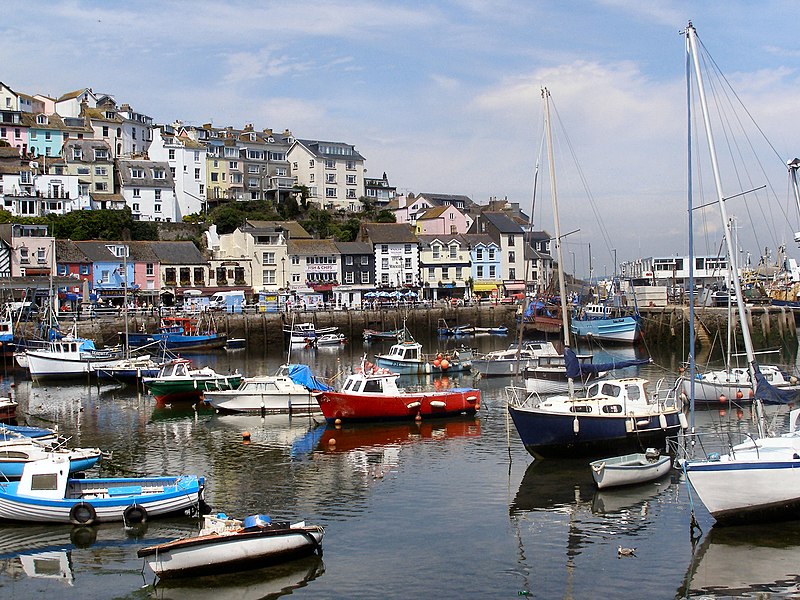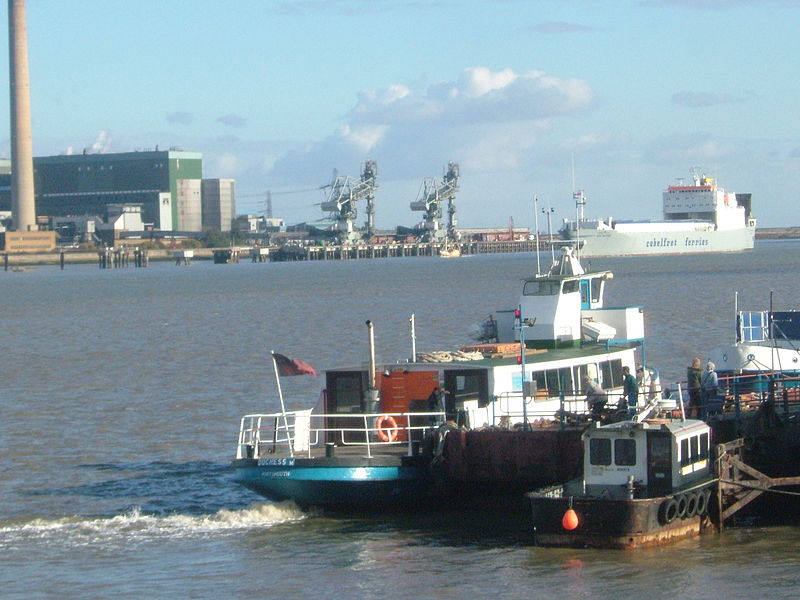But what about the Steamer London?
Well, that was described by that great man of letters William Topaz McGonagall:
'Twas in the year of 1866, and on a very beautiful day,
That eighty-two passengers, with spirits light and gay,
Left Gravesend harbour, and sailed gaily away
On board the steamship "London,"
Bound for the city of Melbourne,
Which unfortunately was her last run,
Because she was wrecked on the stormy main,
Which has caused many a heart to throb with pain,
Because they will ne'er look upon their loved ones again.
Well, quite.
(You can find the whole poem, if you're feeling strong, HERE).
The harbour from which the Steamer London set out was a seaside one like this:

photo of Brixham Harbour by David Dixon
(I've put in because it's so pretty, though Gravesend Harbour actually looks like this:

photo by Clem Rutter, Rochester Kent.)
Luckily for most of us, we don't need to go to the seaside to find a harbour, for a harbour can shield us, from, well, most of the natural shocks that flesh is heir to.
We might find a harbour at home, or with friends; in libraries, with families, in baths, in books...though of course one man's harbour may well be another man's torture-chamber.
So: where's your harbour?
And where's your Steamer London?
Spot the Frippet: harbour. This word was originally nothing to do with the sea or ships. It comes from the Old English herebeorg, from here, army, and beorg, shelter. Rather sweetly, it's related to the Old High German heriberga, hostelry.
No comments:
Post a Comment
All comments are very welcome, but please make them suitable for The Word Den's family audience.